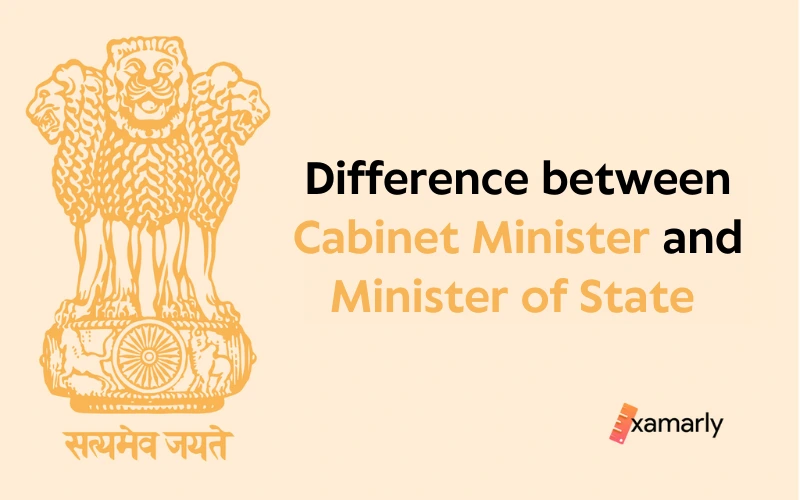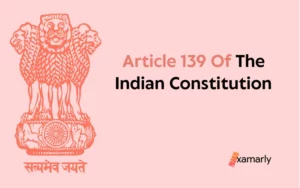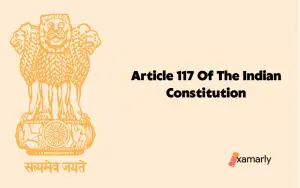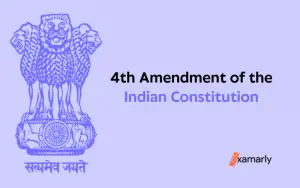An Overview
In many countries, the government is divided into several departments, each with its own responsibilities and duties. These departments are headed by officials, who are appointed by the Prime Minister or President.
In some countries, there are two types of ministers: Cabinet Ministers and Ministers of State. In this article, we will learn about these two types of officials. We will also take a look at the difference between Cabinet Minister and Minister of State and try to understand the manner in which these two titles are distinct from each other.
Read on to gain a clear understanding of these two ranks of officials and the difference between them. You will be able to learn about these officials with great clarity and will also be able to distinguish between the two based on various points of comparison.
- An Overview
- Cabinet Minister
- Minister of State (MoS)
- Ministerial Representation in Meetings
- Difference between Cabinet Minister and Minister of State
- Examples of Cabinet Ministries and Minister of State Positions
- Summing Up
- FAQ Related To the Cabinet Minister and a Minister of State
- What is the role of a Cabinet Minister?
- What is the role of an MoS?
- Who has more authority, a Cabinet Minister or an MoS?
- Who has direct access to the Prime Minister or President, the Cabinet Minister or the MoS?
- Who is a Cabinet Minister?
- Who is an MoS?
- What is the difference between a Cabinet Minister and a Minister of State?
- Who appoints Cabinet Ministers and MoS?
- Are Cabinet Ministers and Ministers of State part of the same cabinet?
Cabinet Minister
He/She is a senior member of the government who holds significant authority and influence over their respective departments.
These members are responsible for developing and implementing administrative policy and have direct access to the Prime Minister or President. They are typically members of the cabinet, which is a group of senior government officials who make important decisions on behalf of the government.
Roles and Responsibilities
- Appointing and managing government officials and departments within their jurisdiction.
- Developing and implementing policies and programs related to their department.
- Representing the government and negotiating with other countries and organizations.
- Advising the head of state on matters related to their department.
- Exercising executive power and making decisions on behalf of the government.
Minister of State (MoS)
He/She, on the other hand, is a junior member of the government who assists Cabinet Ministers in their duties and responsibilities.
The MoS does not have the same level of authority as the Cabinet Ministers and is not typically a member of the Cabinet. Instead, they are responsible for supporting these members in their work and implementing their policies.
They are responsible for specific policy areas within a government department and may be given specific projects to oversee.
Roles and Responsibilities
- Implementing government policies and programs related to their policy area.
- Representing the government at events and meetings related to their policy area.
- Advising the Cabinet and its members on matters related to their policy area.
- Participating in the development of new policies and programs within their jurisdiction.
Minister of State with Independent Charge
Minister of State with Independent Charge, or the MoS with Independent Charge is a position in the government that holds immense responsibility and plays a crucial role in the governance of the country. The MoS with Independent Charge is a Cabinet-level member who is not a member of the Cabinet but reports directly to the Prime Minister.
The MoS with Independent Charge is appointed by the President on the advice of the Prime Minister and is responsible for specific portfolios or departments. They are responsible for overseeing the functioning of their departments and for ensuring that government policies and programs are executed efficiently.
Roles and Responsibilities
The MoS with Independent Charge is a crucial position in the government and plays a vital role in shaping the future direction of the country.
MoS with Independent Charge is responsible for formulating and implementing policies, preparing budgets, representing their departments, monitoring performance, maintaining public relations, and coordinating with other departments.
They must ensure that their departments are functioning optimally and that government policies are effectively executed to achieve the desired outcomes.
The roles and responsibilities of an MoS with Independent Charge are varied and encompass a wide range of tasks. Some of the key roles and responsibilities of this concerned ministry are:
- Policymaking: MoS with Independent Charge are responsible for formulating and implementing policies related to their specific departments. They play a key role in shaping the future direction of their departments and in ensuring that government policies are effectively executed.
- Budgetary Allocation: They are responsible for preparing and presenting the budget for their departments to the Parliament. They are also responsible for ensuring that the funds allocated for their departments are utilized effectively.
- Representation: MoS with Independent Charge are often the face of their departments and are responsible for representing their departments in various forums and meetings. They are also responsible for representing the government’s views and policies related to their departments.
- Checking and assessing: They are responsible for monitoring the performance of their departments and for evaluating the effectiveness of government policies and programs. They must ensure that the departments under their charge are performing optimally and that government policies are achieving their intended outcomes.
- Public Relations: MoS with Independent Charge are responsible for maintaining good relations with the public and for ensuring that their departments are accessible and responsive to the needs of the people. They must also ensure that the public is well informed about the policies and programs of their departments.
- Department-to-department communication: They are responsible for coordinating and collaborating with other departments and agencies to ensure that government policies are effectively implemented. They must also ensure that their departments are working in harmony with other departments and agencies to achieve common goals.
How does an MoS differ from an MoS with Independent Charge?
- Reporting: The former reports to a Cabinet Minister, whereas the latter is not accountable to any senior official and has the power to take decisions independently.
- Portfolio: An MoS is usually assigned a specific portfolio or department within a ministry, whereas an MoS with Independent Charge is given a full-fledged department to head.
- Responsibilities: An MoS has limited responsibilities and functions, whereas an MoS with Independent Charge has wider and more important responsibilities and decision-making powers.
- Status: An MoS has a lower status and is seen as a junior member, whereas an MoS with Independent Charge has a higher status and is considered a senior member.
- Rank: An MoS has a lower rank compared to an MoS with Independent Charge.
- Powers: An MoS has limited powers and cannot take major decisions without the approval of a senior member, whereas an MoS with Independent Charge has full decision-making powers and autonomy.
Ministerial Representation in Meetings
The Prime Minister leads meetings of Cabinet Ministers where they determine the collective position of the Cabinet, which all members are bound to follow, regardless of personal opinions. This enables the government to handle pressure in all aspects such as political, public, and media pressure.
All the ministers, including Cabinet, MoS, and Sub Ministers come together as a part of a group. They constitute the Council of Ministers. However, they don’t all meet together.
Also, you must note that there are differences between a Cabinet Minister and a Council of Ministers.
MoS attend meetings for their respective department, which are usually led by the Cabinet Minister.
However, in special cases, an MoS may be invited to participate in a cabinet meeting if the agenda concerns their ministry.
Difference between Cabinet Minister and Minister of State
These are two distinct positions within a government, each with its own responsibilities and levels of authority. Understanding the difference between the two is important in order to have a clear understanding of how a government functions and who is responsible for what.
- Authority: Cabinet ministers have more authority and influence over their respective departments than Ministers of State.
- Responsibility: The former is responsible for developing and implementing government policy, while the latter assists them in these tasks.
- Access: The former have direct access to the Prime Minister or President, while the MoS do not.
- Membership: The former are typically members of the cabinet, while MoS are not.
Refer to the table below to understand the difference between the two in a comprehensive manner.
| S. No. | Cabinet Minister | Minister of State |
|---|---|---|
| 1. | High-ranking official | Junior-level official |
| 2. | Appointed by the head of state | Assists Cabinet Minister |
| 3. | Manages government department | Assigned specific policy areas |
| 4. | Considered a member of the inner circle | Participates in policy decisions and development |
| 5. | Holds significant power and influence | Advises Cabinet Minister on the policy area |
| 6. | Responsible for the appointment and management of government officials | Implements administrative policies and programs |
| 7. | Develops and implements policies | Represents the government at events and meetings |
| 8. | Negotiates with other countries and organizations | Advises on a policy area |
| 9. | Advises head of state | Participates in policy development |
| 10. | Exercises executive power | Junior role in charge of departments within a government |
Examples of Cabinet Ministries and Minister of State Positions
Let us have a look at some examples of Cabinet Ministries and their corresponding positions of MoS.
Cabinet Ministries
- Ministry of Defence
- Ministry of Foreign Affairs
- Ministry of Finance
Ministers of State
- MoS for Defence
- MoS for Foreign Affairs
- MoS for Finance
Related Article: Difference Between Cabinet And Council Of Ministers
Summing Up
In conclusion, the distinction between a Cabinet Minister and an MoS is important in understanding the hierarchy and responsibilities within a government.
While the former holds significant authority and responsibility, an MoS play a crucial role in supporting and implementing administrative policies.
FAQ Related To the Cabinet Minister and a Minister of State
What is the role of a Cabinet Minister?
They are senior members of the government who hold significant authority and influence over their respective departments. They are responsible for developing and implementing government policy and have direct access to the Prime Minister or President.
What is the role of an MoS?
They are junior members of the government who assist cabinet ministers in their duties. They are responsible for supporting cabinet ministers in their work and implementing their policies.
Who has more authority, a Cabinet Minister or an MoS?
Cabinet ministers have more authority and influence over their respective departments than MoS.
Who has direct access to the Prime Minister or President, the Cabinet Minister or the MoS?
Cabinet ministers have direct access to the Prime Minister or President, while MoS do not.
The former is a high-ranking official in a country’s government who is appointed by the head of state and responsible for managing a particular administrative department. In many countries, he/she is considered a member of the government’s inner circle and holds significant power and influence.
Who is a Cabinet Minister?
A Cabinet Minister is a high-ranking member of the government who is responsible for the administration of a particular department, and who is appointed by the Prime Minister.
Who is an MoS?
An MoS is a junior government rank official who assists a Cabinet Minister in their duties, and who may also be appointed to lead a specific policy area.
What is the difference between a Cabinet Minister and a Minister of State?
The former is a senior member of the government with broader responsibilities, while the latter is a junior member with more specialized responsibilities.
Who appoints Cabinet Ministers and MoS?
They are appointed by the Prime Minister.
Are Cabinet Ministers and Ministers of State part of the same cabinet?
Yes, they are both members of the same cabinet and play an important role in the decision-making processes of the government.






